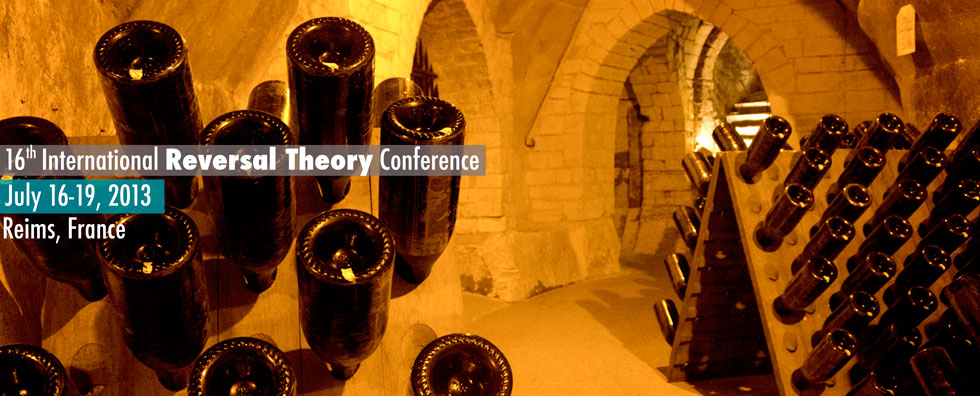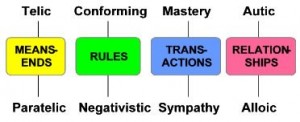
About Reversal Theory
Reversal theory emerged in the early 1970s, created and developed by K. C. P. Smith and M. J. Apter, in order to account for observations of psychological, emotional and motivational states reversals, in child and family clinics. This early work led to the description of a dynamic system, based on the concept of the “reversal:” the switching between opposed motivational states. For example, you can eat being serious and pursuing a goal in eating, or being in a spirit of seeking pleasure in the moment. Thus, “serious, future-oriented” and “playful, focused on the present” are two possible (and opposite) motivational states that can be associated with the activity of eating. The theory is structured around four domains of experience, each corresponding to two opposed motivational states.
The theory was presented in public for the first time at a conference in Bristol, England, in 1975. In 1983, an international working group was formed, the Reversal Theory Society, which holds an international conference every two years. Interest in Reversal Theory has led to many scientific articles, books, chapters in books, and academic dissertations (doctoral dissertations for the most part). Visit the Reversal Theory website http://www.reversaltheory.org/: a resource for researchers, practitioners, and students interested in the ideas and tools of Reversal Theory. The website provides background information about reversal theory, a current bibliography, upcoming conference information, and ways to contact others with interest in the theory.
JOURNAL OF MOTIVATION, EMOTION, AND PERSONALITY: REVERSAL THEORY STUDIES |


